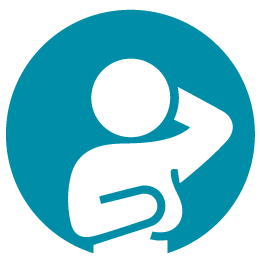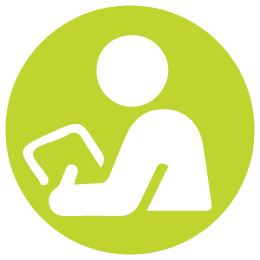
Diagnosis & Treatment
Are you interested in providing feedback on this webpage? Please fill out our evaluation here.
Diagnosis
Breast cancer is typically diagnosed when a change is discovered in the breast or when a mammogram indicates an abnormality within the breast. There are different types of breast cancer that can be diagnosed, some more aggressive than others. Cancer can begin in different areas of the breast, such as the ducts, the glands, or the lobules. The diagnostic process can feel lengthy with multiple tests and hospital appointments, which can cause natural feelings of frustration and sometimes stress. Try to remember, before a diagnosis of breast cancer is confirmed, healthcare providers must rule out other possible causes or health concerns.

What do we know about breast cancer diagnosis in Black women?
What does this mean for me?
There is not much research in the Canadian context, but we know that:
- Triple negative breast cancer (TNBC), a very aggressive form of breast cancer, occurs more often in Black women, women under 40 and women with a BRCA1 mutation in the United States (American Cancer Society, 2021).
- The prevalence of TNBC is also different among Black women depending on their place of birth. According to one study, TNBC is shown to be more common in U.S. born and West- African-born Black women, followed by Caribbean-born, and East-African-born Black women.22
- In Ontario, immigrant women from the Caribbean and Latin American had a longer time to get a diagnosis of any type of breast cancer and were more likely to be diagnosed at an advanced stage than other women.24
If you’ve been recently diagnosed, we understand that there is so much going on during the process, and conversations with your healthcare provider can be overwhelming. To make sure you get the most out of your appointments, it can be useful to bring a list of questions to help you remember everything you want to ask and keep the conversation focused on the topics that matter most to you. Don’t be afraid to ask as many questions as you like and to advocate for clarity when needed.
Below are some questions you can use to help guide your discussion with your healthcare provider.
- Exactly what type of breast cancer do I have?
- What information do we know about my breast cancer, and what do we still need to find out?
- What is the stage and grade of my cancer and what does this mean?
- Based on my type of cancer, what are my chances of survival? What have you personally seen in your practice?
- How does my cancer affect my treatment options?
- What type of resources, care options and programs do I have access to that can make this journey easier/improve my care, now that I have been diagnosed?
Treatment
Your cancer care team will recommend a treatment plan that is tailored to your unique needs. It is also important to have a conversation about what is important to you in terms of your health and your beliefs. Your final treatment plan will be based on specific information about your cancer, including the type of breast cancer you have, its grade, its stage, where it is in your body, as well as your overall health status.

What do we know around breast cancer treatment for Black women?
What does this mean for me?
- Black women are 1.73 times more likely than white women to wait 60 days or more to begin treatment after being diagnosed in the U.S. 25
- In Ontario, immigrant women from Latin America, Caribbean and Sub-Saharan Africa on average waited a month longer to start chemotherapy than immigrants from Western Europe. 26
- In the United States, African American women with TNBC are less likely to get the surgery and chemotherapy that they should than non-Hispanic White women. 23
- In the United Kingdom, Black women reported facing greater difficulty navigating their way through the healthcare system, and as a result, they receive delayed treatment for breast cancer. 27 In particular, they reported facing difficulties booking and attending their appointments because of feelings of disempowerment. 27
To guide your conversation with your healthcare provider on creating a treatment plan, below are some questions you can use. Although not all will apply to you, they might help you in getting started.
- What are my treatment choices and what do you recommend and why?
- How soon do I need to start treatment and how long will it last?
- What side effects are there to the treatments you recommend? Is there anything I can do to reduce these side effects? Will my treatment plan impact my daily-life activities?
- What should I do to get ready for my treatment?
- What are the chances the cancer will return after this treatment? What have you personally seen in your practice?
- Who will be a part of my cancer care team and what can I expect from all of them?
There are also programs that can provide you with support while navigating the healthcare system, and that can empower you to start these conversations with your provider around some of your concerns and worries. See a list of some resources we have compiled here.

References | Glossary | Graphics Designed Nafisa Salima
This site is best viewed on Chrome
Are you interested in providing feedback on this webpage? Please fill out our evaluation here.







